About the Publisher
We hope you enjoyed this book. Since 1944, Mercier Press has published books that have been critically important to Irish life and culture.
Our website is the best place to find out more information about Mercier, our books, authors, news and the best deals on a wide variety of books.
Mercier tracks the best prices for our books online and we seek to offer the best value to our customers, offering free delivery within Ireland.
A large selection of Mercier's new releases and backlist are also available as ebooks. We have an ebook for everyone, with titles available for the Amazon Kindle,
Sony Reader, Kobo Reader, Apple products and many more. Visit our website to find and buy our ebooks.
Sign up on our website to receive updates and special offers.
www.mercierpress.ie
http://twitter.com/IrishPublisher
http://www.facebook.com/mercier.press
For my parents, Kevin and Mary Ryan
Sixteen Dead Men
O but we talked at large before
The sixteen men were shot,
But who can talk of give and take,
What should be and what not
While those dead men are loitering there
To stir the boiling pot?
You say that we should still the land
Till Germanys overcome;
But who is there to argue that
Now Pearse is deaf and dumb?
And is their logic to outweigh
MacDonaghs bony thumb?
How could you dream theyd listen
That have an ear alone
For those new comrades they have found,
Lord Edward and Wolfe Tone,
Or meddle with our give and take
That converse bone to bone?
W. B. Yeats
MERCIER PRESS
3B Oak House, Bessboro Rd
Blackrock, Cork, Ireland.
 www.mercierpress.ie
www.mercierpress.ie
 http://twitter.com/IrishPublisher
http://twitter.com/IrishPublisher
 http://www.facebook.com/mercier.press
http://www.facebook.com/mercier.press
Anne-Marie Ryan, 2014
ISBN: 978 1 78117 134 9
Epub ISBN: 978 1 78117 306 0
Mobi ISBN: 978 1 78117 307 7
This eBook is copyright material and must not be copied, reproduced, transferred, distributed, leased, licensed or publicly performed or used in any way except as specifically permitted in writing by the publishers, as allowed under the terms and conditions under which it was purchased or as strictly permitted by applicable copyright law. Any unauthorised distribution or use of this text may be a direct infringement of the authors and publishers rights and those responsible may be liable in law accordingly.
Contents
AOH Ancient Order of Hibernians
BMH Bureau of Military History
CYMS Catholic Young Mens Society
DMP Dublin Metropolitan Police
GAA Gaelic Athletic Association
GPO General Post Office
GSWR Great Southern and Western Railway
ICA Irish Citizen Army
ILP Independent Labour Party of Ireland
IRA Irish Republican Army
IRB Irish Republican Brotherhood
ISRP Irish Socialist Republican Party
ITGWU Irish Transport and General Workers Union
IWW International Workers of the World
NAI National Archives of Ireland
NLI National Library of Ireland
RIC Royal Irish Constabulary
SPI Socialist Party of Ireland
SSF Scottish Socialist Federation
UCD University College Dublin
UVF Ulster Volunteer Force
I am grateful for the support of a number of individuals and institutions while researching and writing this book.
The staff of the reading room at the National Library of Ireland went out of their way on many occasions to locate material. I am also grateful to the staff of the libraries of University College Dublin and Trinity College Dublin. The Trojan work of the staff of the Military Archives in digitising the witness statements collected by the Bureau of Military History between 1947 and 1957 has been of enormous assistance in preparing this book.
I would like to thank the staff at Mercier Press, in particular Mary Feehan and Wendy Logue, for their assistance and encouragement throughout the production of this book. I would also like to thank Robert Doran for his work on proofreading the text.
I acknowledge the support of my former colleagues at Kilmainham Gaol Museum, who over the years have been a source of information, debate and inspiration. I am grateful for the assistance of Niall Bergin, who provided images from the Kilmainham Gaol collection for this book. I would like to give particular thanks to Brian Crowley, curator of the Pearse Museum, for the mentoring, advice and help he gave me throughout my time working for the Office of Public Works.
This book would not have been possible without the patience and encouragement of my family and friends, too numerous to mention here by name.
I owe an eternal debt of gratitude to my parents, Kevin and Mary Ryan, to whom this book is dedicated.
The Sixteen Dead Men about whom Yeats wrote his poem in the aftermath of the Easter Rising were a diverse group. Ranging in age from twenty-five to fifty-eight, their occupations included headmaster, tobacconist, poet, railway clerk, university lecturer, printer, humanitarian, water bailiff, art teacher, silk weaver, corporation clerk, farmer, trade union leader, bookkeeper, chemists clerk and newspaper manager. Two of the leaders were born outside Ireland: Thomas Clarke in the unlikely location of a British Army barracks on the Isle of Wight, James Connolly in the Irish ghetto of Edinburgh. Some had complicated national and religious identities: Patrick and Willie Pearse were the sons of an English stone carver, Thomas MacDonaghs mother was the daughter of English parents, Roger Casement was raised a Protestant but secretly baptised a Catholic by his mother, and John MacBride was the son of an Ulster-Scots Protestant from Co. Antrim. Others had close links with the institutions of British imperialism that they would later fight against: Michael Mallin and James Connolly were former soldiers in the British Army, amonn Ceannt was the son of a Royal Irish Constabulary (RIC) constable and Roger Casement had been knighted for his services as a British consul exposing the dark side of the rubber trade in the Congo and Peru.
This group of men, who participated in an armed rebellion against British rule in Ireland in April 1916, came to the point of insurrection by a variety of pathways. For many of them, their revolutionary instinct had developed at a young age. Thomas Kent was in his early twenties when he was imprisoned for his activities with the Land League in Co. Cork in the late nineteenth century, Michael OHanrahan grew up hearing stories of his ancestors involvement in the 1798 rebellion in Co. Wexford, Edward Daly was born into a Limerick family prominent in the Fenian movement, Con Colbert and Sen Heuston were members of the nationalist youth organisation Na Fianna ireann, and Sen Mac Diarmadas republican politics were nurtured by his national schoolteacher, who provided him with books on Irish history.
For some, the declaration of an Irish Republic on 24 April 1916 was the culmination of a lifetimes struggle. Thomas Clarke had become active in the secret revolutionary organisation the Irish Republican Brotherhood (IRB) as a young man and had served fifteen years imprisonment for his involvement in the preparations for a Fenian bombing campaign in Britain; James Connolly had devoted his adult life to improving conditions for working-class people in Scotland, Ireland and America, and was a long-standing advocate of the establishment of a socialist Irish republic. But for others, the conversion to radical nationalism came late. Patrick Pearse was a speaker at a pro-Home Rule rally as late as March 1912, amonn Ceannts nationalist activities were mostly confined to the Irish language movement until he was elected to the Provisional Committee of the Irish Volunteers in November 1913, while Thomas MacDonagh was not co-opted onto the Supreme Council of the IRB until shortly before the Easter Rising.

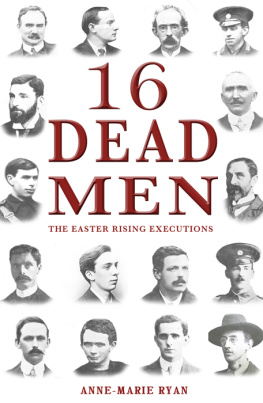
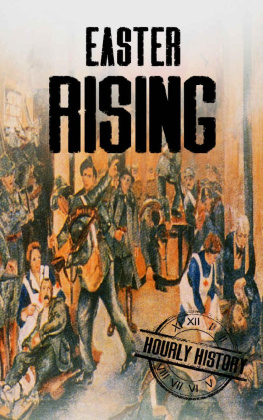
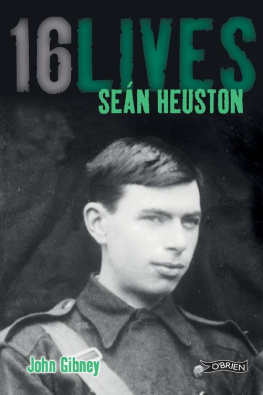

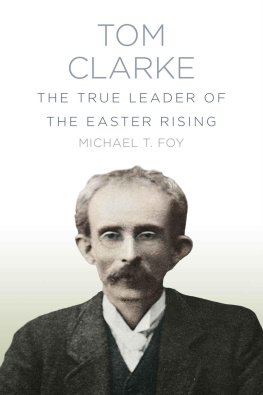
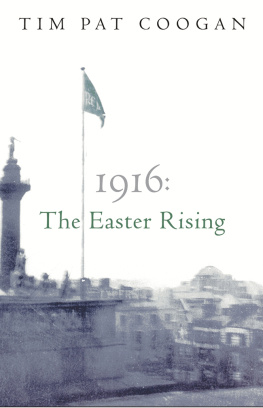
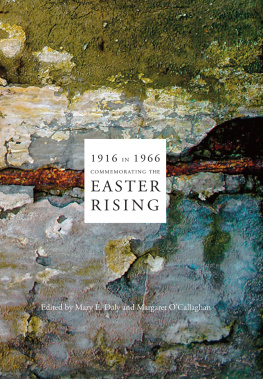
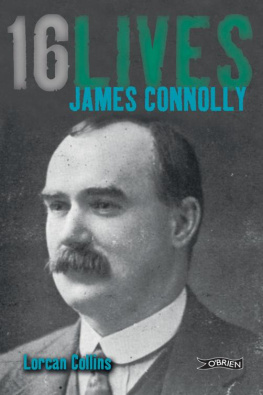
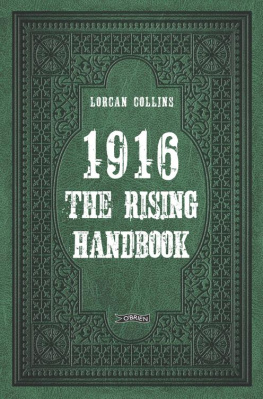
![Lorcan Collins [Lorcan Collins] - 1916: The Rising Handbook](/uploads/posts/book/143326/thumbs/lorcan-collins-lorcan-collins-1916-the-rising.jpg)
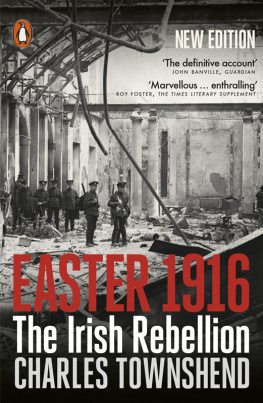
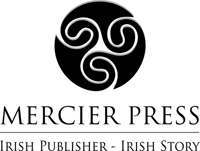

 www.mercierpress.ie
www.mercierpress.ie http://twitter.com/IrishPublisher
http://twitter.com/IrishPublisher http://www.facebook.com/mercier.press
http://www.facebook.com/mercier.press